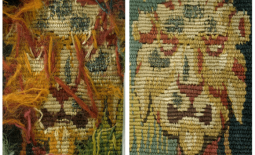Cause, Effect, Squeaky Wheels, and Newspapers
 I recently read couple of articles about the Newspaper industry and the online industry which, while not overtly interconnected, mesh together so well to relate a story-behind-the-story, I can’t help but think of a pithy spin on old cliche that my grandmother one said to me:
I recently read couple of articles about the Newspaper industry and the online industry which, while not overtly interconnected, mesh together so well to relate a story-behind-the-story, I can’t help but think of a pithy spin on old cliche that my grandmother one said to me:
“The squeaky wheel may get the grease, but sometimes it just gets replaced with a wheel that doesn’t make so much noise.”
Every since the internet made it so incredibly easy to share things, the people who put effort and money into creating those things have been worried about getting paid. This concern really hit the fan when Napster let the genie out of the bottle with such a loud POP that it was heard in every corner of the inter-webs.
As more media companies published public feeds of their content online, more curation sites found ways to repackage and import that content into their sites in order to help them capture more eyeballs from the sweat of another platform’s brow. Those publishers put their content out there to be found — they just hadn’t counted on readers never having to come back to their own sites to continue their news grazing. Once the realization struck home, newspaper Pay Walls went up faster than Trump-promised border walls.
Newspapers have been hit especially hard because they have always had the best reputation for creating insightful, original, and well-researched articles. Even in this age of Presidentially-denounced Fake News, print news still keeps the firmest grasp on their original reputation. Television seems to have willingly given up any hope of holding onto (or restoring) this kind of reputation for themselves in their rush to break (provocative) news first.
But as advertising dollars flow out the exit doors of print publications, those same publishers boot the reporters out the door right after; sacrificing the one edge and indisputable value they possessed over every other media in an effort to plug financial holes in an ever-sinking ship — their original content creators.
As the Newspapers sacrifice local content and reporters in favor of less-expensive global news networks, partnerships, and affiliations, they produce less and less content in-house and their news begins to look more and more like the content which appears on everyone else’s website and in everyone else’s publication.
The local content producers and their unique perspectives were the most important (and profit-able) things those publications had going — and those were the first things they got rid of.
As the situation becomes more dire they grasp at straws hope to get permission to band together (those few that remain) and demand compensation from those who only seem to be making the content these organizations publish and post on the internet available to the audiences they’ve already lost.
Ironically, clutching at these straws may have become the last straw for sites like Facebook and Google as they explore the means for getting news content from their own sources.
As we learned in basic science classes back in school — for every action there is an equal and opposite reaction. For every cause, there is an effect.
Cause:
Newspapers ask permission to confront Facebook and Google as a united front.
Effect:
Google invests more money into technology to completely eliminate the need for reporters than it would have taken to buy pretty much every newspaper that’s still printing in America.
Like the proverbial tree falling in the wood, if a Newspaper publishes content on their own website and on the printed page to which very few people subscribe — does it still have value if no one is there to read it?
If there are any innovative Newspaper publishers out there who want to hear ideas on how they can operate and compete more profitably without having to resort to the lemmings-like strategy of their industry associations — you know where to find me.



